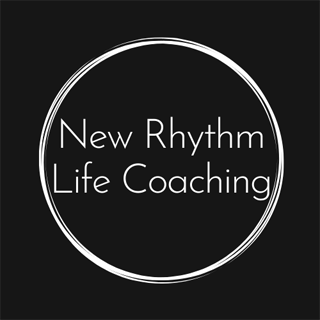If You Have Struggled With Weight Maintenance, Your Beliefs About You May Be The Problem
In order to make sense of all of the input we are taking in every day from the world, mostly without our awareness, our brain takes shortcuts.
One of these shortcuts is through making biased approaches to decision making called, confirmation bias.
Confirmation bias is the tendency to seek out and favor evidence that supports our beliefs and values.
It impacts the way we gather information, and it also influences how we interpret and recall information.
This type of bias can prevent us from looking at situations objectively.
We disregard things that prove our beliefs wrong, and we search for things that prove our beliefs right.
As a result, the stories we tell ourselves about who we are become self-fulfilling prophecies.
For example, as someone once again at her goal weight who historically has lost and gained weight multiple times, you may believe, “I’ve never been good at doing what it takes to keep my weight off.”
Your brain will look to the past for evidence to support this belief, and come up with old, recycled thoughts tied to your old identity…
· It will remind you how you can’t trust yourself—you gave into the urge to overeat chips late last night.
· It will remind you how you need to enjoy your days off so you only stayed committed to your food plan last week on Monday, Tuesday, Wednesday, and Thursday.
· It will tell you it’s not fair you are someone who for the last 10, 20, or 30+ years has had to worry about your weight and what you eat.
It’s totally normal to have these kinds of thoughts.
Your brain is trying to wrap itself around your new reality, and it wants to go back to what is familiar because that feels safer.
Reinterpreting reality is exhausting, and it requires the brain to expend energy which goes against our evolution.
Our primitive brain is motivated by 3 things to increase our chances of survival, and these things make up the “Motivational Triad.”
They are: seek pleasure, avoid pain, and conserve energy.
It’s effortless to continue the belief system that being overweight is just who you are.
To believe, “I am a thin person who no longer has to think about her weight and the food she eats” goes against the engrained past belief, “I’ve never been good at doing what it takes to keep my weight off.”
This ingrained belief from your past feels like a fact because the thought comes to you so naturally.
However, how we recall our past today is really your current thoughts about your past.
This is something that you can decide how to think about, on purpose.
When you change your belief about who you are, it requires you to reinterpret the past in order to support your new belief.
What you are capable of exists in your future, and not your past.
If you take advice from your past about what you are capable of, you will keep creating the same past results.
This is where we must make a shift in our belief about who we are and what we’re capable of.
Our identity is just a group of thoughts we have chosen to think about ourselves.
We tend to think about our identity as an objective truth that we observe, but really it’s a decision we make.
Question your current belief systems.
You have the gift to think about what you’re thinking about.
Dive in and uncover your beliefs about you.
Be willing to prove yourself wrong.
Being wrong will feel terrible—the brain does not like to be wrong.
Think about how often your knee-jerk reaction to someone telling you that you are wrong is to feel defensive.
Have compassion for yourself.
Your brain sees this as a threat to all of the data it has accumulated and proven true.
These practiced and repeated beliefs are efficient, and changing them the brain reads as a threat to your survival.
We are not motivated to seek data that contradicts what we believe, but instead, we are motivated to be right.
Being aware of the biases and shortcomings that are typical of our human brain can allow us to reevaluate and explore the opposite of what we have always thought.
Here are 6 questions you can use to help you gain awareness of your blind spots:
1. Who would I be if I let go of the belief I’ve never been good at doing what it takes to keep my weight off? (Insert your thought here)
2. Do I really believe this to be true?
3. How could I be wrong?
4. What if the opposite is true, and can I find evidence for it?
5. Why do I believe that?
6. What if I believed I can lose weight permanently?
Be curious.
Create some space for yourself to play with new thoughts without dismissing them.
They won’t feel comfortable at first.
They won’t feel “right.”
That’s okay.
It’s just your brain’s confirmation bias.
Don’t judge yourself or your thoughts by that.
Just practice, be open, and stay willing.
The more you allow yourself to explore the opposite of what you have always thought without pressure or judgement…the more you allow your mind to be open to the possibility that you could be wrong about what you’ve been believing.

